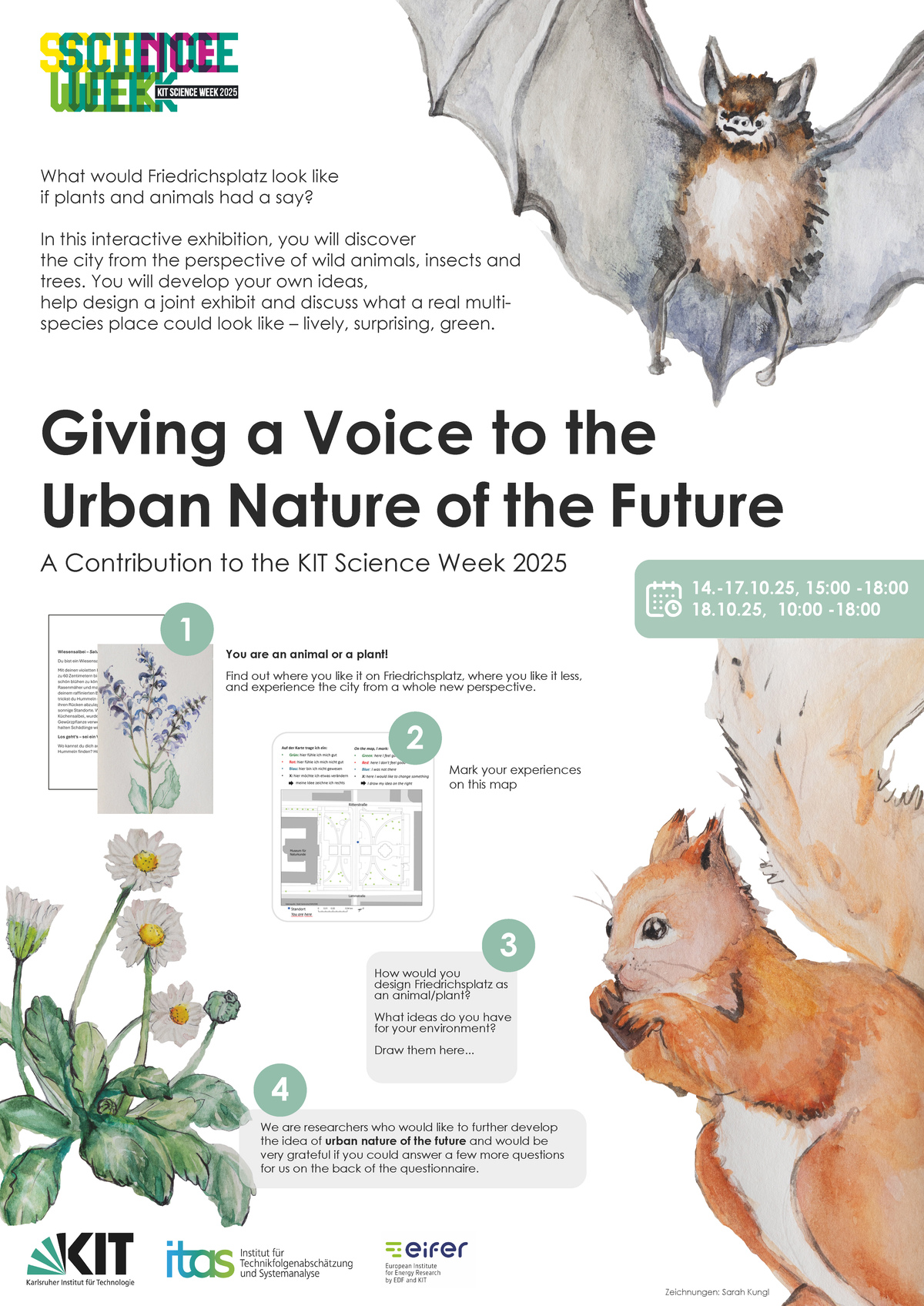CitiesForALL: Co-designing future cities for humans and wildlife
- Project team:
Sultana, Marufa (Project leader); Somidh Saha, Marius Huber
- Funding:
Young Investigator Group Preparation Program
- Start date:
2025
- End date:
2026
- Project partners:
Universität Freiburg; Forstliche Versuchs- und Forschungsanstalt Baden-Württemberg (FVA); International Urban Wildlife Information Network (UWIN), Chicago (USA)
- Research group:
Project description
Cities around the world are striving to become more climate resilient by integrating nature-based solutions (NBS) and green infrastructure (GI) into their urban planning. This opens up a range of exciting opportunities, but a significant challenge remains: How can cities grow sustainably in harmony with nature? Many cities face constraints when designing and allocating green spaces and there is a lack of knowledge about the critical thresholds needed for effective GI and NBS. This gap is especially evident in the insufficient consideration of both plant and animal life, which limits cities’ ability to manage wildlife sustainably.
The exploratory research project CitiesForALL aims to enhance our understanding of urban wildlife ecology and its relationship with landscape drivers, climate factors, tree ecology, and socioeconomic influences. There are still gaps in current NBS and GI practices in cities. To close these gaps, the need for inter- and transdisciplinary, multi-city studies on urban wildlife and the interaction between various species such as trees, insects, birds, and mammals in urban areas will be identified and discussed. The project addresses the need for a solid understanding of how urban greening efforts and socioeconomic factors in the context of climate change interact and impact wildlife diversity in cities worldwide.
CitiesForALL focuses on creating synergies across diverse societal challenges by investigating the key factors that will shape wildlife in urban settings in the future. The project will establish consistent wildlife monitoring in two key cities – Freiburg and Karlsruhe – while also laying the groundwork for future expansion into cities in developed (Europe) and developing (Asia) regions. During the project period, research collaborators from Stuttgart and Berlin (Germany) as well as Chicago (USA), among others, will also contribute to the understanding of future research priorities on wildlife-inclusive urban development.
Bringing urban nature into the conversation
During KIT Science Week 2025, scientists from the CitiesForALL project, KAT (The Karlsruhe Transformation Center for Sustainability and Cultural Change), MUT (KIT Center for Humans and Technology), and EIFER (European Institute for Energy Research) came together to host an interactive public activity at Friedrichsplatz in Karlsruhe.
What would our future cities look like if plants and animals could take part in decision-making? And what if we humans became their voice in urban design? To explore these questions, citizens were invited to step into the roles of various animal and plant species and experience the Friedrichsplatz from their perspectives. Is Friedrichsplatz a suitable habitat? How would it need to be redesigned for this species?
We thank all participants for the diverse conversations and creative ideas for the future design of Friedrichsplatz. We collected 124 insights and look forward to sharing the results with you.
Contact
Karlsruhe Institute of Technology (KIT)
Institute for Technology Assessment and Systems Analysis (ITAS)
P.O. Box 3640
76021 Karlsruhe
Germany
Tel.: +49 721 608-26893
E-mail


